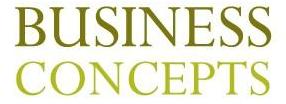
(Since we hate spam too we never share information.)
© 2010 WJG Business Concepts
MANAGEMENT
Your commitment to your own success as a person and as a manager will directly affect your commitment to others. Your commitment is communicated in many subtle ways to those around you. It is not cheerleader enthusiasm, but rather self-confidence and goal directedness which inspires others to action. This program is designed not only to help you understand your own sources of motivation, but also enable you to create an environment that allows others to become motivated. Your self-confidence, self esteem, and sense of purpose will help develop the same qualities in those around you. You will be performing your most important function as a manager, achieving results by developing people. The “Management Process” covers the following:
THE EVER-CHANGING MANAGERIAL ROLE
Managerial Talent
The Dynamic Role of a Manager
Your Commitment to the Organization
THE MANAGER AS A LEADER
A Concept of Leadership
Authority and Power
Leader and Follower
Managerial Types
GOAL SETTING FOR SUCCESS
Do You Know Where You’re Going?
The Six Components of the Goal Setting Process
Four Types of Goals
Criteria for Effective Goal Setting
Effective Use of a Goal Planning Sheet
Obstacles to Your Success
The Importance of Goals
TURNING SOLUTIONS INTO ACTIONS
The Importance of Action Steps
Procrastination
Managing Frustration
Courage
ORGANIZATIONAL GOAL SETTING
Organizational Goals: What Are They?
The Power of Organizational Goals
Criteria for Setting Organizational Goals
Developing Organizational Goals
You Are the Difference
MANAGING YOUR TIME
Common Enemies of Time
Planning with a Purpose
Designing a System that Works
Action Steps for Making the Most of Your Time
Managing Your Time is Your Responsibility
PROJECT MANAGEMENT
There Is a Difference
Critical Path Method (CPM)
A New Approach
Managing the Buffers
A Positive Difference
MOTIVATION AND CONFIDENCE
Types of Motivation
Traditional Types of Motivation
The Power of Attitude Motivation
Confidence
Confidence Inhibitors
DECISION MAKING
Courage and Decision Making
Emotions and Decisions
Making Quality Decisions
The Elements of Decision Making
Ethics and Integrity
Where You Are Now
TRANSACTIONAL ANALYSIS FOR MANAGERS
The Parent Ego State
The Child Ego State
The Adult Ego State
Developing Through Affirmations
Do Affirmations Work?
COMMUNICATIONS
Emotions within Communication
Principles of Communication
Active Listening
Non-Verbal Communications
DEALING WITH NEGATIVE BEHAVIOR
The Environment
Dealing with Negative Feedback
Non-Team Player
Dealing with Formal Grievances
Creating a Problem Solving Environment
This Is Just the Beginning
For more information please follow this link
SALES
Becoming a high achiever in the sales profession will depend substantially upon your desire. How much do you really want to succeed? It will also be affected by your willingness to learn and improve. How much of a price in learning and practicing are you willing to pay? It will also depend on your ability to apply your knowledge.
You will lean to turn dreams into goal directed action, while others wait to follow. The “Sales Development Process” will provide you with the inspiration to develop a strong purpose in life, and an “Action Plan” to map out your goal and develop the skills needed to follow your plan to completion. The “Sales” process includes:
SUCCESS IN SALES
The Need to Reinvent Yourself
Why is Sales Development so Important?
The Importance of Balance
Preparation for Success
Success Qualities
THE BUYING/SELLING PROCESS
The Buying Process
Why Do People Buy?
Evaluation of You and Your Company
Decision Making
The Selling Process
YOUR PERSONAL AND PROFESSIONAL GROWTH
Attitudes
Building Attitudes for Positive Results
Resistance to Change
PROSPECTING FUNDAMENTALS
Identifying Your Target Market
Suspects vs. Prospects
Creating Interest
Finding More Prospects More Often
Networking
PLANNING YOUR SUCCESS PART I
The Role of Goals
Criteria for Personal Goal Setting
Rewards and Consequences
Roadblocks to Success
A Solution to Every Obstacle
Action Steps and Dates
Affirmation Techniques
Visualization
PROSPECTING: ADVANCED TECHNIQUES
Referrals
Developing Referral Sources
Centers of Influence
The Sales Funnel
COMMUNICATION SKILLS
Using Questions to Stimulate Feedback
Active Listening
Nonverbal Communication
GETTING APPOINTMENTS
Letters of Introduction
Tracking Your Success
Making the Phone Contact
The Purpose of the Call – The Appointment
The Screener
Organizing Your Activities
The “S.I.T.” File
PLANNING YOUR SUCCESS PART II
Professional Goals
Criteria for Setting Professional Goals
Different Types of Goals
Short-Range Goals
Long-Range Goals
Tangible Goals
Intangible Goals
THE INTRODUCTION
Habit Formation
The Attitude Factor
Changing Attitudes
Building Success Attitudes and Habits
Leading People to High Performance
GAINING FAVORABLE ATTENTION
Building and Maintaining Rapport
Verbal Credibility
Creating a “Sense-Able” Picture
DISCOVERING WANTS AND NEEDS
The Transition
Position Your Organization
Effective Questioning Techniques
Goal Questions
Challenges
Needs
Four Needs Categories
BUILDING THE CASE FOR ACTION
Reward Questions (Then Consequence Questions)
Consequence Questions (Then Reward Questions)
Obstacle Questions
Wants
Clarifying Techniques
Confirming Techniques
PRESENTING BENEFITS AND CONSEQUENCES
Effective Presentations
Understanding the Situation
Clarify Objectives
Your Approach
Features, Benefits, and Advantages
Measurable Outcomes
Time and Financial Expectations
A Convincing Summary
Impact Presentation Meetings
GETTING COMMITMENT AND FOLLOW-UP
Proposals
Requests for Proposals or Quotes (RFP or RFQ)
Getting Commitment
Follow-Up
OVERCOMING OBSTACLES FOR CONTINUED SUCCESS IN SALES
Preventing Objections
Handling Objections
Preventing Stalls
Handling Stalls
Hidden Opportunities
You Have the Power!
The Challenge
Follow this link for more information
Annual Goals Review
“Nothing great was ever achieved without dreams, goals and action.”
Organization Planning Process
- Business Goals Scorecard
- Organizational Evaluation
- Core Values
- Personal Behaviors
- Personal Planning Section
- Vision
- Overall Organizational Goals
- Goal Categories area of responsibility
- Convert to Goal Statement
- Prioritize Goal Statements
Personal Planning Process
- Personal Goals Scorecard
- Self Evaluation
- Dream Inventory
- Dream Categories
- Core Values
- Personal Vision
- Convert Goals to Statements
- Prioritize Goal Statements
- Goal Planning Sheets
“Who I am was a gift to me … Who I become is a gift to others.”


